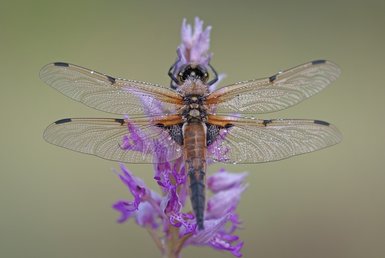|
By Brian Millard As somewhat of a science-nerd I find it fascinating to be living during a global science experiment. Quite often we are looking to see if there is a cause-and-effect situation going on and not just random events. Well, the scientific community has come to a resounding consensus that human activities (burning fossil fuels, over-fishing, pollution, etc.) are causing global biodiversity loss. If you are able to read this article right now, I would like to formally welcome you to the Holocene Extinction. Also known as the Sixth Mass Extinction. Now there is no need to raise an alarm and start stocking up on bottled water and cans of tuna, because this extinction event has been going on for the last 9,000 – 13,000 years! Hold on! If this mass extinction has been going on for 13,000 years, how is it possible that humans have had that big of an effect? True. Unfortunately there was no CNN or Buzzfeed back then to say for sure what caused the extinction so long ago. Some think that following the last Ice Age, certain species couldn’t adapt fast enough as the environment changed. Others believe that these early extinctions were caused by the proliferation of modern humans. Regardless of the distant past, it is glaringly obvious that modern humans have been the cause of modern extinction. It is hard for me to think of one activity I do in a day that isn’t directly, or indirectly, linked to biodiversity loss. The Holocene Extinction event has affected every major group of plants and animals on land and in water. The trickiest part is estimating the current rate of extinction. Especially when you consider that we share Earth with an estimated 8.7 million different species of plants and animals, and have yet to name 88.5% of them. There are a couple of estimates for our current extinction rate. Stuart Pimm, a theoretical ecologist, stated that the current extinction rate of plants is 100 times higher than pre-human rates. A study published in 2014 in Conservation Biology claims that our current extinction rate is 1,000 times more than the natural background rates. Long story short, we are losing more species of plants and animals than we are gaining new species. Mass extinction isn’t a new phenomena to our planet. The fact remains that this extinction is occurring because of a certain species of animal and within such a short ecological time frame. Itis something that is both terrifying and fascinating. This blog is also posted on Earth Unfiltered.
1 Comment
7/26/2017 04:13:08 pm
Wow, its most beautiful art and it looks so much beautiful Butter flower. Butter flower is looks too beautiful and this one is best bird. God create us color ful bird and kids like it.
Reply
Leave a Reply. |
ELB MembersBlogs are written by ELB members who want to share their stories about Ontario's biodiversity. Archives
January 2023
Categories
All
|



 RSS Feed
RSS Feed